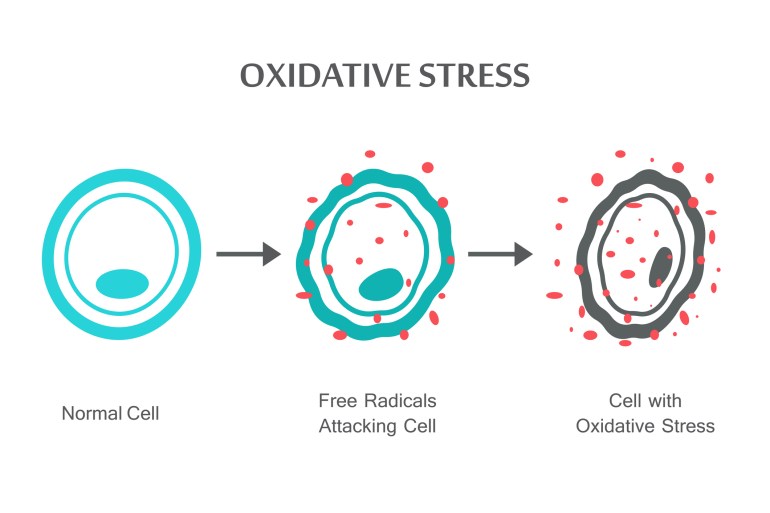How we can improve recovery, post exercise
Are you exercising regularly but feel frustrated because you know you can do more, but your body is holding you back? If so, you might need to focus on recovery.
We know that being fit is essential for good health and that nutrition plays an important role in our body’s ability to regenerate post-workout. However, most people associate post-workout recovery with protein shakes. This is by no means wrong because protein, carbs and fats are essential for recovery but there is more to it than that. In this article I'm going to explain the importance of having a recovery plan to help you recovery fasts, feel stronger and stay active.
I really enjoy my weekly gym sessions and love the feeling I get after a hard workout, like there’s nothing in the world I can’t do! I felt that way until recently, when the pains, aches and injuries started to kick in. For the last couple of years, I’ve been struggling more to recover from my workout sessions. And it wasn’t just me: my husband, who enjoys Brazilian Jiujitsu (a form of martial art), was also feeling this struggle; not to mention a lot of our friends too.
When we exercise, there is so much that goes on inside our bodies, including the exchange of hundreds of hormones, enzymes, proteins and chemical reactions. But for the purposes of recovery, I would like to focus on a couple of things that really stand out for me.
Inflammation
When we push ourselves during a physical activity, we incur varying degrees of small injuries, called microtraumas, to our muscles, connective tissues and joints. When this happens, the body calls upon our immune system to fix these tiny injuries by initiating a natural healing process called inflammation. During this process, the body releases a number of inflammatory cytokines, proteins which help rebuild those damaged soft tissues to become tougher and stronger. This way, we are able to withstand a similar workout in the future, allowing us to push ourselves harder and longer, while traumatising our muscles less and recovering quicker!
So what’s wrong with inflammation if it makes us stronger? If our body can recover from these workouts, then why do we still need to worry about recovery? Well, it’s because the biggest challenge is knowing our limitations.
Issues can arise when we push ourselves too much and too often before giving our muscles enough time need to recover and heal properly. When we continue to overwork our muscles that haven’t healed properly, our immune system reacts again, initiating inflammation as a defence mechanism to fix more injuries that have occurred.
Although a certain amount of inflammation is good and essential for making our body fitter and stronger, an excess amount can reverse the positive effects by slowing down the repair process, and sometimes can cause harm to healthy tissues and joints. In fact, an excess amount of inflammation is dangerous and can spread to other organs in the body leading to chronic issues such as arthritis and certain cancers.
Oxidative stress
Exhaustive exercise is known to speed up our metabolism which means it generates more free radicals in the body. Free radicals are by-products (that is, waste products) of chemical processes in our bodies. By nature, they are single atoms that scavenge the body in an effort to pair up with other atoms to become stable. While trying to achieve this, they damage or mutate healthy cells, creating a chain reaction damaging thousands of cells. 1
Although they are vital in small amounts as they support our immune system and metabolic balance, an excess amount causes cell damage and oxidative stress.
Luckily our bodies have the ability to fight against normal levels of free radicals by producing antioxidants to help neutralise these free radicals, but our bodies can only produce antioxidants in insignificant amounts. When there is an imbalance between free radicals and antioxidants, it causes oxidative stress. As you might be aware, there are a number of other factors that contribute to oxidative stress too, such as living in a polluted area, stressful lives, and lack of sleep, along with lifestyle and food choices.
An accumulation of free radicals is a real threat. Several studies throughout the last few decades have suggested that oxidative stress plays a role in the development of many conditions, including cardiovascular disease, certain cancers, Alzheimer's disease, Parkinson's disease, and all inflammatory diseases, such as arthritis and lupus. Plus, it is strongly associated with accelerated ageing.

In short, exercise is great and essential for longevity,but acknowledging what goes on in the body as a result of it and giving your body enough time to recover is crucial to eradicate any negative outcomes from it.
That’s what’s going on, now how do we fix it? Through recovery.
Spending at least 10 minutes stretching after exercising is essential for releasing muscle tension and improving elasticity. However, stretching is only part of a recovery plan. There are a number of tasks we should focus on that will enable our bodies to adjust to our harder [TF2] workouts while recovering quicker.
Three things for a quick recovery!
Nutrition
Active Recovery
Sleep
Let’s go a little deeper into each.
Nutrition
Firstly, eat foods rich in phytonutrients (meaning, nutrition from plants) to obtain their antioxidant and anti-inflammatory benefits. I also use curcumin, an active compound of turmeric, omega3 and raw honey to give my body an additional boost to deal with excess inflammation and the accumulation of free radicals. If you are interested in these ingredients, make sure to check out my next blog post.
Just as your body needs fuel before a workout (carbs are a good energy source pre-workout), it needs to replenish its depleted energy stores (glycogen levels) after a workout, preferably within 60 minutes. Consuming a meal with carbs and proteins rich in amino acids, in a 2:1 ratio, will help you regain your energy levels and enable the growth and repair of muscles.
Drinking lots of fluids helps to replace liquids lost from the body due to excess heat from exercise as well as from perspiration.

Perform Active Recovery (AR)
AR refers to having a bit of down-time to balance the stress your body and muscles undergo after an intense workout by engaging in some low intensity workouts, enabling your body to recover faster. The aim of AR is to get enough blood flowing to the muscles to provide them with essential nutrients like oxygen and amino acids required for recovery.
Whether you enjoy swimming, yoga, cycling or just a brisk walk, try to mix up your weekly exercises to allow your body to recover from intense sessions whilst staying active.

AR helps to reduce the build-up of lactic acid in the muscles (a by-product of when carbohydrates are broken down for energy) avoiding post-workout stiffness and discomfort. 3
It improves mood and encourages you to keep going.
Unless you have seriously hurt yourself, doing nothing doesn’t form part of AR. Your body still requires substantial movement to increase blood flow to the muscles to speed up recovery.
Get a good night’s sleep
Sleeping seven to nine hours forms an important part of recovery. When you sleep, a number of processes happen to enable muscles to heal and grow:At night, our body produces more of its own muscle-building hormones, including human growth hormone, to stimulate growth and cell reproduction.
During the N3 stage of non-REM (non-rapid eye movement) sleep, blood flow to our muscles increases, enabling tissue growth and repair.
During REM (rapid eye movement) sleep, muscles relax, relieve tension and reduce symptoms of certain chronic pain. 2
All this means is that a lack of enough restorative sleep can inhibit the body’s ability to repair and strengthen itself.
Focusing on the above has really helped me stay active regularly and improve my strength. More importantly, I suffer from less pain now than before I paid attention to my recovery, and I feel more confident when it comes to pushing myself harder, on the days I opt for a heavy workout.


